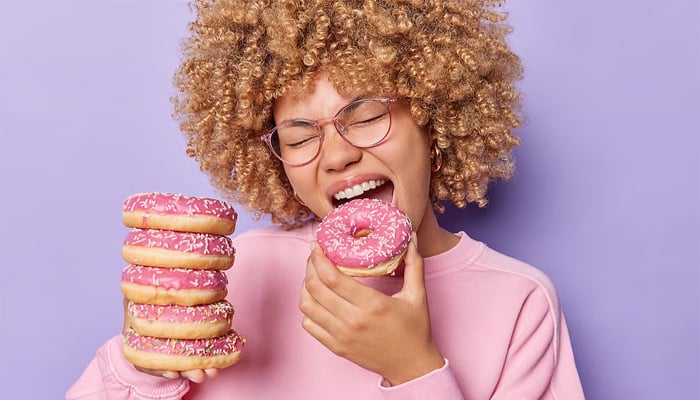
Why does sugar taste so good — and why do people crave it? Scientists may finally have received the answer.
Researchers revealed the structure of the sweet receptor, the small part of your tongue that tells your brain when something tastes sweet.
The study, published May 7 in the journal Cell, could assist food manufacturers make sweet foods with less sugar.
An associate research scientist and co-first author of the study Zhang Juen stated, “By uncovering the structure of the sweet receptor, we gain knowledge into the molecular mechanisms that govern how we detect sweetness, and how a single receptor can recognise such a broad range of sweet-tasting molecules.”
Charles Zuker of the Howard Hughes Medical Institute led the study with members of his Columbia University lab. Back in 2001, his team revealed the genes that control the sweet receptor.
Now, they’ve found what it looks like and how it works.
Food manufacturers might not require artificial sweeteners anymore. Rather, they could use reduced sugar and add ingredients to stimulate the sweet receptor to offer the same amount of sweet with fewer calories.
“This discovery will greatly benefit the battle against our strong desire for sugar, and enable the rational design of modulators of the sweet receptor, which in turn may help alleviate the prevalence of obesity, diabetes, and cardiovascular disease," Juen stated
Our taste buds assist us enjoy food and avoid hazardous food products. Individuals can taste sweetness, sourness, bitterness and more.
Zhang and Lu had to learn several latest skills to do this study. Their lab's leader urged them to try new things. “In the Zuker lab, the only limitation is our creativity,” Zhang said.
Over the last 20 years, the lab has researched how taste works from the tongue to the brain. Furthermore, they studied the link between brain control of hunger and cravings.
According to a study, the vagus nerve, which connects the gut and brain, plays a pivotal role in why people crave fat and sugar.
















